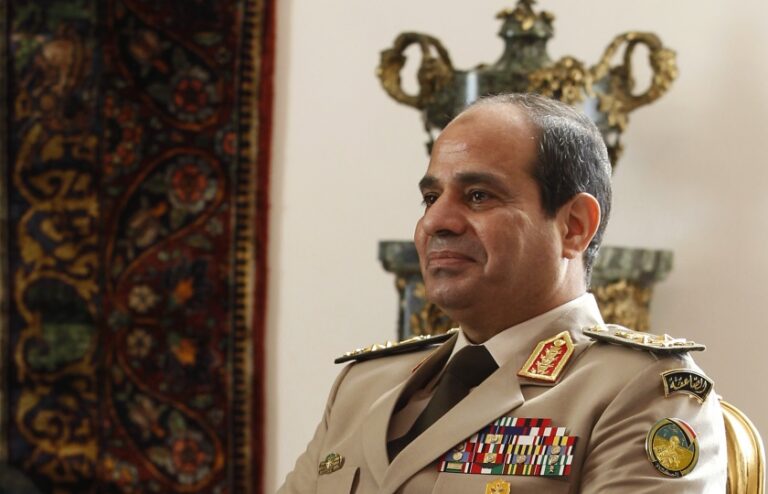Parties from the Egyptian civil opposition have held intensive meetings and dialogues with each other during the past few days to prepare to participate in the National Dialogue called upon by President Abdel Fattah El-Sisi, which many consider a tactic by the regime forces by the severe economic crisis in the country due to wrong policies. Despite the response shown by some opposition forces to Sisi’s call for dialogue, the regime is continuing its blatant violations of human rights as if to assure everyone that it has not changed and that what is happening is nothing but a tactical move to pass the economic crisis without a famous outburst.
The opposition’s demands
The Civil Democratic Movement, a grouping of 7 civil parties and opposition public figures, announced its acceptance of the principle of “political dialogue” with authority to improve the conditions of social and political life, stressing the need for the dialogue to be severe and accurate and to end with practical results that are directly put into practice. The movement established several procedural and objective controls that are considered to help make “political dialogue” a means to save the nation and solve its problems, “not just beautifying the facade.” Among these controls, “the dialogue should be under the umbrella of the presidency, as it is the only party capable of implementing what can be agreed upon.”
The movement’s parties also demanded that the dialogue take place in all sessions and all axes between an equal number of those who represent the authority with all its components and the political opposition and that the dialogue is launched as soon as possible, provided that it continues until the final results are formulated. A straightforward program is agreed upon on how and when to implement it, and all of this takes place under the Hearing and sight of the people by broadcasting the sessions through various media.
The Civil Democratic Movement suggested that the agenda be divided into primary axes – each of which has detailed committees – and its statement is as follows:
- Political reform and democratic transformation.
- Economic reform and social justice.
- Legislative and institutional reform.
- Human rights and public freedoms.
- National security and national interests
- Deepening citizenship and combating discrimination.
The civil movement demanded the formation of a technical secretariat responsible for preparing for the dialogue, managing it, formulating its outcomes, and writing a report to be published periodically on public opinion with what has been achieved and what was agreed upon, provided that the government and heads of parliamentary bodies attend the dialogue sessions, share the thought, and provide the information requested by the interlocutors clearly and transparently to The dialogue parties take their decisions based on correct knowledge.
The parties of the Civil Democratic Movement, along with other parties such as the Egyptian Social Democratic Party and the Development and Reform Party, are holding consultation sessions these days to agree on the titles and main files of the upcoming national dialogue sessions and to choose representatives of the opposition to join its technical secretariat. At first glance, these seem to be “conditions” for the opposition’s participation in the dialogue with the regime. Still, the Egyptian opposition realizes its proper size and that the regime assumes a powerful position, so it describes this statement as “a statement of concepts and demands, not conditions,” meaning that it will participate in the dialogue even if it does not has its “demands” fulfilled.
Continuous abuses
Al-Sisi’s regime continues to practice its hobby of violating the rights of Egyptians. On the level of civil and political rights, the National Security (the political security apparatus of the Sisi regime) is excluding hundreds of independent workers from running for the trade union elections that are being prepared for these days to control and domesticate the unions altogether. The same happened with the House of Representatives and the Senate. Regarding the rights of prisoners, violations are continuing. Dr Mahmoud Shaaban, a professor of Arabic literature at Al-Azhar University, suffers in his prison cell. A few days ago, he appeared before the court in a wheelchair, complaining that he had been subjected to heinous violations, including torture, humiliation, and deprivation of his most basic rights as a prisoner. And here is the prominent political activist, Alaa Abdel-Fattah, who has continued his hunger strike for more than 40 days to demand better conditions as a prisoner and his rights to exercise, read books and clean clothes, and to investigate the violations he was subjected to, including torture and verbal humiliation, while the regime continues to abuse him, refusing to give him his rights. Only this month witnessed the death of at least 4 political detainees in mysterious circumstances or due to health neglect, 3 of whom had only been arrested for a few months and were in good health before their arrest.
The regime’s continuation of its violations and its refusal of demands for the immediate release of political detainees to confirm its seriousness in bringing about political reform, affirms that the call for the “national dialogue” is nothing but a manoeuvre that was forced by severe economic conditions And that all that Sisi dreams of is that the severe financial crisis will pass him, to take off the dress of the reformer and put on his actual dress as a military dictator.









